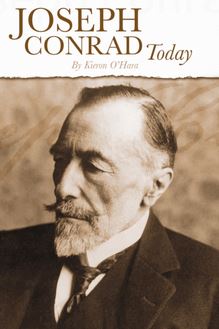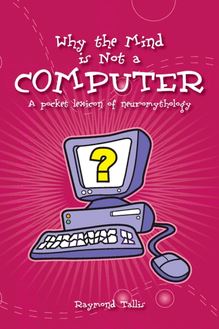-
 Univers
Univers
-
 Ebooks
Ebooks
-
 Livres audio
Livres audio
-
 Presse
Presse
-
 Podcasts
Podcasts
-
 BD
BD
-
 Documents
Documents
-
- Cours
- Révisions
- Ressources pédagogiques
- Sciences de l’éducation
- Manuels scolaires
- Langues
- Travaux de classe
- Annales de BEP
- Etudes supérieures
- Maternelle et primaire
- Fiches de lecture
- Orientation scolaire
- Méthodologie
- Corrigés de devoir
- Annales d’examens et concours
- Annales du bac
- Annales du brevet
- Rapports de stage
La lecture à portée de main
Vous pourrez modifier la taille du texte de cet ouvrage
Découvre YouScribe en t'inscrivant gratuitement
Je m'inscrisDécouvre YouScribe en t'inscrivant gratuitement
Je m'inscrisEn savoir plus
Vous pourrez modifier la taille du texte de cet ouvrage
En savoir plus

Description
Sujets
Informations
| Publié par | Andrews UK |
| Date de parution | 11 mai 2017 |
| Nombre de lectures | 0 |
| EAN13 | 9781845408244 |
| Langue | English |
Informations légales : prix de location à la page 0,0324€. Cette information est donnée uniquement à titre indicatif conformément à la législation en vigueur.
Extrait
The Sarkozy Phenomenon
Nick Hewlett
SOCIETAS
essays in political
& cultural criticism
imprint-academic.com
2017 digital version converted and published by
Andrews UK Limited
www.andrewsuk.com
Copyright © Nick Hewlett, 2011, 2017
The moral rights of the author have been asserted.
No part of this publication may be reproduced in any form without permission, except for the quotation of brief passages in criticism and discussion.
Imprint Academic, PO Box 200, Exeter EX5 5YX, UK
Other books by Nick Hewlett
Badiou, Balibar, Rancière. Re-thinking Emancipation, Continuum, 2007.
Democracy in Modern France, Continuum, 2003.
Modern French Politics. Conflict and Consensus since 1945, Polity, 1998.
Acknowledgements
I would like to thank James Shields, David Lees and two anonymous readers for comments either on draft chapters of this book or on papers which influenced it. In particular, I wish to thank Emmanuel Godin for his careful and insightful reading of the whole draft manuscript and for his very helpful comments on it. The final version is, of course, my responsibility alone. (Translations from the French, unless otherwise indicated, are also my own.) I am also grateful to Anthony Freeman at Imprint Academic for his enthusiasm for the book from the start, to Rosalind Davies for her copy editing and to Jacqueline Speel for meticulous indexing. Earlier versions of parts of Chapter Two appeared in a book edited by Tony Chafer and Emmanuel Godin, entitled The End of the French Exception? (Palgrave, 2010) and in Modern and Contemporary France (XV: 4, Nov. 2007).
Thanks also to Gary Browning, for many conversations about many things, to my children Emily and Gus, who have many thought-provoking ideas of their own, and to Bridget Taylor for putting up with constant reports on the day-to-day progress of my work.
This book is dedicated to my friends in France, whose generosity and friendship over many years have been important for me personally and also valuable in enabling a better understanding of France and French politics.
Nick Hewlett
January 2011
Abbreviations
CFE-CGC
Confédération française de l’encadrement-Confédération générale des cadres
CFTC
Confédération française des travailleurs chrétiens
CFDT
Confédération française démocratique du travail
CGT
Confédération générale du travail
CGT-FO
Confédération générale du travail-Force ouvrière
CPE
Contrat première embauche
EDF
Electricité de France
ENA
Ecole nationale d’administration
FN
Front national FO Force ouvrière GDF Gaz de France
MEDEF
Mouvement des entreprises de France
MODEM
Mouvement démocrate
NPNS
Ni putes, ni soumises
OECD
Organisation for Economic Cooperation and Development
ORTF
Office de la radiodiffusion-télévision française
PCF
Parti communiste français
PS
Parti socialiste
RATP
Régie autonome des transports parisiens
RPF
Rassemblement du peuple français
RMI
Revenu minimum d’insertion
RSA
Revenu de solidarité active
SMIC
Salaire minimum interprofessionnel de croissance
SNCF
Société nationale des chemins de fer
SPD
Sozialdemokratische partei Deutschlands
SUD
Solidaires, unitaires et démocratiques
TEPA
Loi en faveur du travail, de l’emploi et du pouvoir d’achat
UDF
Union pour la démocratie française
UMP
Union pour un mouvement populaire (April–October 2002, Union pour une majorité présidentielle)
UNSA
Union nationale des syndicats autonomes
Pour mes amis en France
1. Introduction
I’ll be a president like Louis de Funès in Le Grand Restaurant : servile with the powerful, insufferable with the weak. I love it.
Nicolas Sarkozy, 16 February 2007 (quoted in Jeudy and Vigogne, 2007: 152)
From time to time, in one country or another, national political leaders emerge who offer themselves as vehicles for profound transformation, making it clear that they wish to change significantly the direction in which their country is travelling. In order for such individuals to achieve high office and to have a significant influence on the course of the political, social and economic life of a country, personal characteristics are of course important; in addition to being hungry for power, they are often hard-working, have well-honed oratory skills and charm. But personal characteristics alone are never sufficient for the success of such individuals. The circumstances in which they are operating must also be favourable to their project and, crucially, the leader must have the support of powerful groups both in politics and in the rest of society as well. Just as importantly, other groups who oppose the leader must be in sufficient disarray that they are unable to garner enough support to prevent the leader and their supporters from achieving substantial power and carrying out their wishes. The modern governmental history of France is peppered with heads of state whose rule may aptly be described as personalised, authoritarian and populist. The latest such example, Nicolas Sarkozy, has thus been likened to Charles de Gaulle, Philippe Pétain, Napoleon III and Napoleon I.
When Nicolas Sarkozy was elected president of the republic on 6 May 2007 France entered a decidedly new phase in national politics. We saw the victory of a candidate with the image of a tough, innovative leader apparently prepared to say the previously unsayable and to embrace drastic measures with open arms where this was deemed necessary for the good of the nation. He had made it clear from the start of his campaign that he did not wish to be seen as a mere representative of the centre-right, which three previous presidents after de Gaulle, arguably, had been. These were Georges Pompidou (from 1969 to 1974), Valéry Giscard d’Estaing (1974–81) and Jacques Chirac (1995–2007). Rather, Sarkozy placed great emphasis on himself as a special individual who had a mission to break with the past and do something decidedly different. Thus, despite having held three key ministerial positions under President Chirac and despite having had a substantial influence on important aspects of the Chirac presidency, one of his most-used campaigning words in 2007 was the French rupture . France needed to break, he argued, with years of economic stagnation, social strife and a lacklustre image on the international stage. The country needed to be jolted into a process of modernisation and he was elected with a mandate to make profound changes, as someone who, as he says at the very beginning of his autobiography, wants to be seen as a man who gets things done: ‘I’ve always wanted to take action’ (Sarkozy 2006: 1).
Certainly, it was clear that Sarkozy sought to be identified with a tough, law and order agenda, and during his two stints as Minister of the Interior under President Chirac he had already established a track record as precisely this. It was also evident that he wished to steer France in a more market-oriented direction than had been the case previously. This conformed with his position as a right-wing leader of the early twenty-first century in one of the most economically successful nations on earth by conventional criteria (although it is often not conceived as such). But Sarkozy was also a maverick and was not content with limiting himself to a mainstream right-wing policy agenda and there were also frequent references to left-oriented sources of inspiration, such as the Socialist leaders Léon Blum and Jean Jaurès and the communist resister Guy Môquet, who was executed by the Nazis in Châteaubriant in October 1941 at the age of seventeen. Moreover, Sarkozy’s election manifesto and campaign speeches time and again emphasised the importance of rewarding hard work on the part of ordinary people and promised to raise standards of living for all. Nevertheless, precisely what Sarkozy planned to do once in office was not clear, as both his campaign and manifesto were an idiosyncratic mix of determined statements of intent which, when all these statements were put together, lacked coherence and certainly did
-
 Univers
Univers
-
 Ebooks
Ebooks
-
 Livres audio
Livres audio
-
 Presse
Presse
-
 Podcasts
Podcasts
-
 BD
BD
-
 Documents
Documents
-
Jeunesse
-
Littérature
-
Ressources professionnelles
-
Santé et bien-être
-
Savoirs
-
Education
-
Loisirs et hobbies
-
Art, musique et cinéma
-
Actualité et débat de société
-
Jeunesse
-
Littérature
-
Ressources professionnelles
-
Santé et bien-être
-
Savoirs
-
Education
-
Loisirs et hobbies
-
Art, musique et cinéma
-
Actualité et débat de société
-
Actualités
-
Lifestyle
-
Presse jeunesse
-
Presse professionnelle
-
Pratique
-
Presse sportive
-
Presse internationale
-
Culture & Médias
-
Action et Aventures
-
Science-fiction et Fantasy
-
Société
-
Jeunesse
-
Littérature
-
Ressources professionnelles
-
Santé et bien-être
-
Savoirs
-
Education
-
Loisirs et hobbies
-
Art, musique et cinéma
-
Actualité et débat de société
- Cours
- Révisions
- Ressources pédagogiques
- Sciences de l’éducation
- Manuels scolaires
- Langues
- Travaux de classe
- Annales de BEP
- Etudes supérieures
- Maternelle et primaire
- Fiches de lecture
- Orientation scolaire
- Méthodologie
- Corrigés de devoir
- Annales d’examens et concours
- Annales du bac
- Annales du brevet
- Rapports de stage




















